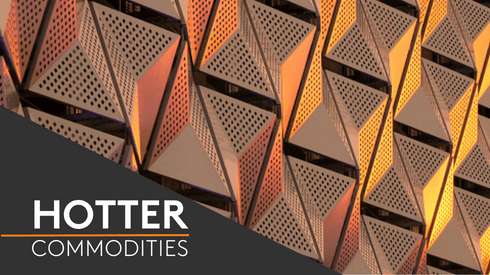The three-month nickel price closed at $35,491 per tonne, down from $37,235 per tonne on Thursday. The price had hit a high of $40,700 per tonne and a low of $27,020 per tonne during this trading week.
The LME introduced rules on Thursday to prohibit the submission of orders outside of the applicable price limit on any execution venue. The exchange said that failure to comply with this prohibition may be treated as a breach of the LME rulebook and that it may take disciplinary action accordingly.
Since the restart of nickel trading, the LME has called six ‘disruption events’ for nickel where the price has hit its limit. But this did not happen during trading on Friday.
“We suspect that it will take a couple more days for the imbalance to run its course before the metal trades according to its fundamentals,” Fastmarkets analyst Andy Farida said.
“Our long-term prognosis for nickel remains bullish, and we still forecast a global supply deficit of 93,000 tonnes this year,” he added, “which means there is fresh upside potential for prices once the dust has settled over the short-squeeze shock.”
Elsewhere on the exchange, aluminium prices remained above $3,600 per tonne, closing at $3,605 per tonne, down slightly from $3,623.50 per tonne on Thursday. Aluminium prices were up by 6% from last Friday’s close.
Aluminium stock levels on the LME were now just 678,100 tonnes. They were last above 1 million tonnes on November 9, 2021.
“Everyone is worried about aluminium supply. The continuing situation with [very high] energy prices means that we could see more smelters go offline soon and it’s just going to add to the chaos,” an aluminium trader said.
Tight supply of aluminium continued to push up European aluminium premiums. Fastmarkets’ benchmark daily aluminium P1020A premium, in-whs dup Rotterdam, was assessed at $430-460 per tonne on Friday, up from $425-440 per tonne on Thursday.
The three-month zinc price closed at $4,066.50 per tonne, up from $4,039 per tonne on Thursday. The price was up by 6.2% from last Friday’s 5pm close.
“As with aluminium, the zinc market saw a move to the session-high very early yesterday, before selling off for the majority of the session,” Al Munro at Marex’s LME desk said.
“And,” he added, “as with copper, we have seen evidence of the reverse arbitrage, selling [LME] and buying [Shanghai Futures Exchange], which – being executed by the physical traders – would suggest that stock could be delivered to LME sheds.”
Total zinc stocks were currently 142,625 tonnes, with 200 tonnes delivered out of sheds in New Orleans on Friday and 100 tonnes out of Kaohsiung. Zinc stocks were down by 28% since the start of the year.





